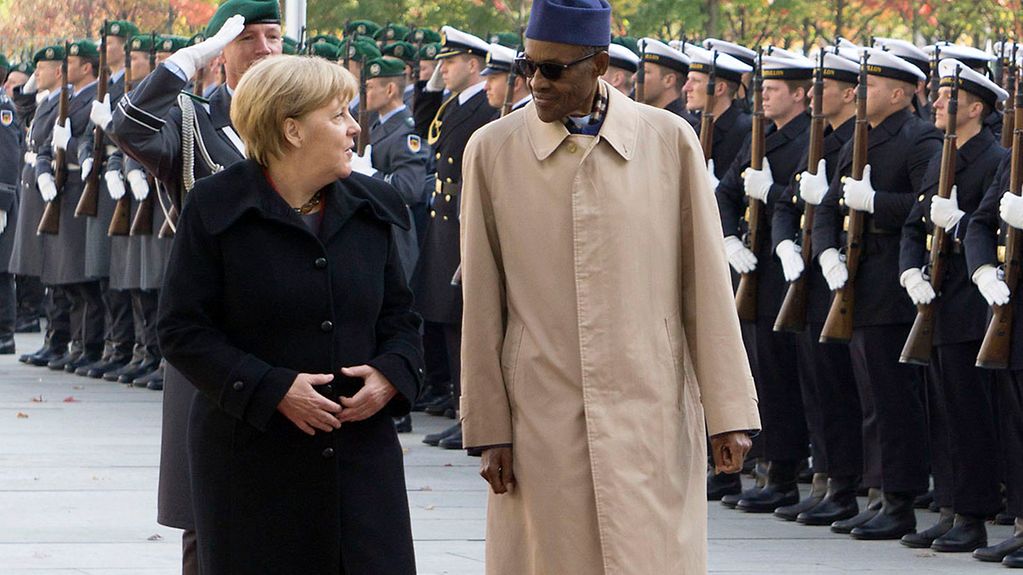President Muhammadu Buhari in Berlin
Germany intends to stand by Nigeria in these economically difficult times, said Chancellor Angela Merkel after a meeting with Nigeria’s President Muhammadu Buhari in Berlin. They also discussed the humanitarian situation in northern Nigeria, the Boko Haram terrorists and a migration partnership.
2 min reading time

Chancellor Angela Merkel and President Muhammadu Buhari discussed development cooperation
Photo: Bundesregierung/Eckel
At the next G20 summit meeting next year, cooperation with Nigeria will be extended, declared Chancellor Angela Merkel after her meeting with the Nigerian President Muhammadu Buhari. The summit will revisit the priorities set at the G7 summit: cooperation in the health sector and the fight against terrorism.
Nigeria is home to more than 180 million people, who speak 514 different languages and belong to 400 ethnic groups. The country has Africa’s second largest gross domestic product (GDP), but in spite of its economic potential, Nigeria is facing huge challenges.
Nigeria’s economy is suffering, as oil prices stay low
The Chancellor pointed out that the economic situation in Nigeria is complicated as a result of the low oil price. This is resulting in high unemployment and crime in the country.
The question of a migration partnership was also discussed. Angela Merkel stressed that the European Commission is interested in negotiating a cooperation arrangement with Nigeria. Genuine prospects must be created in the country, for young people in particular, "either through development cooperation, through jobs or through training opportunities". The German government sees Nigeria as an important partner in Africa.
A joint commission has been pushing ahead with dialogue between Germany and Nigeria in the fields of business, energy and migration for five years already. One focus of economic and business relations is cooperation in the energy sector. In August 2008 the founding document of the Nigerian-German Energy Partnership was signed in Abuja. In October 2013 the energy partnership was extended for another five years. The most recent meeting was held in February 2016.
Fight against the Boko Haram terrorists
Nigeria is facing "huge challenges, also in the fight against Boko Haram". This makes it all the more remarkable that the country has achieved military successes against Boko Haram.
The terrorist group Boko Haram has destabilised entire swathes of Nigeria; more than two million people have fled the violence and are now internally displaced. Ensuring humanitarian supplies for the huge numbers of internally displaced persons is becoming an increasingly acute problem.
The situation in the Lake Chad region is alarming
Development cooperation, said Angela Merkel has been raised "again with 47.5 million euros and 18 million euros humanitarian aid for the Lake Chad region". The humanitarian situation in the Lake Chad region is alarming. More than eleven million people have been displaced. The food security situation is uncertain, as the area covered by Lake Chad has declined dramatically.
For many years, Nigeria has been shouldering responsibility for regional security policy and its security forces are strongly involved in United Nations peace missions. Germany supports Nigeria within the scope of the German government’s ‘Enable and Enhance’ initiative, especially in the fight against the Boko Haram terrorists.